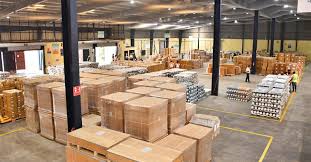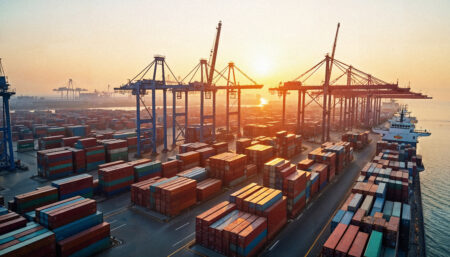
India’s logistics sector has grown significantly recently and is expected to reach $350 billion by 2025, as per GS1 India. COVID-19 brought about changes and led the industry to embrace advanced technologies like AI, ML, and IoT. The sector has seen remarkable technological advancements, making once unimaginable things possible.
Warehousing expansion
DB Schenker recognises the evolving warehousing and logistics landscape in India, with a significant shift towards automation in storage, retrieval, and goods relocation processes. The company is focused on meeting the growing customer demand for warehousing services. To achieve this, DB Schenker is strategically expanding its footprint and service network across various markets. In mid-2020, they launched the largest warehousing hub in Badli, Gurgaon, as part of their broader warehousing project for India. Notably, these investments extend beyond Tier 1 cities and encompass Tier 2 and 3 cities like Lucknow, Kolkata, and Rajpura, where there is a rising demand due to increased consumption and e-commerce activities.
Warehouse automation
Warehouse automation and robotization can revolutionise warehouse operations, and at DB Schenker, we continuously strive for innovation. By integrating Autonomous Mobile Robots (AMRs) that can navigate flexible routes, processes become more efficient and productive. Furthermore, robotic depalletizing optimises putaway processes by automatically unloading totes or cartons from pallets with specialised robots. This eliminates ergonomic and safety issues and addresses labour shortages related to manual unloading.
Digital transformation
To undergo a digital transformation, a company should set clear goals, assess its current technology, find areas to improve, adopt digital tools, promote innovation, and regularly review and adjust its strategy to keep up with the fast-changing digital world.
At DB Schenker, our digitalization strategy improves supply chain efficiency, reduces delays, and enhances inventory management for smooth and reliable service. For instance, using real-time tracking like DB Schenker connect2track, ensures transparency along the supply chain. Customers can monitor the entire process or focus on specific transport sections.
Sustainable practises
Sustainability is now a major factor in the industry, and we are committed to contributing to a greener logistics chain. The sector is making progress in reducing carbon emissions, although there is still more to be done. Some key steps we are taking include using alternative fuels, finding better transportation routes, investing in energy-efficient infrastructure, and using advanced technologies for eco-friendly operations.
Implementation of NLP
The National Logistics Policy is a positive step for the industry and will create a better environment for businesses, supporting the growth of the Indian economy. The policy aims to reduce costs and inefficiencies by establishing a comprehensive framework for the entire logistics ecosystem. It aims to lower logistics costs, making Indian products more competitive in domestic and international markets.
Significance of Indian Market
The rise of e-commerce activities and government initiatives, including the National Logistics Policy contributes to the attractiveness of Indian market for investment and expansion. DB Schenker considers India one of the most crucial markets in their global network and has long-term plans for expansion, focusing on contract logistics, SMEs, and various initiatives for air freight, ocean freight, and land transportation.
Opportunities and Challenges
In the dynamic logistics industry, DB Schenker sees significant opportunities and challenges in India. The complex regulatory landscape, with taxes, permits, and compliance requirements, can be challenging for logistics operations. Additionally, supply chain disruptions and regulatory compliance pose further difficulties. However, the company can leverage advantages such as the potential for e-commerce growth, the implementation of green logistics practices, and advancements in technology to address and capitalise on these challenges.
The Indian market holds great importance for global logistics companies due to its rapid economic growth, strategic location, and increasing urbanisation, leading to a high demand for efficient logistics











